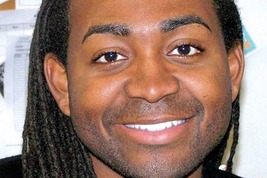One year ago, on the eve of National Black HIV/AIDS Awareness Day 2008, then-presidential candidate Barack Obama said: “We have to overcome the stigma that surrounds HIV/AIDS in the African-American community . .. We need to talk about [it] in our homes, in our schools and in our churches. We need to encourage folks to get tested … In short, we have to take this on clearly and directly.”
A little more than one week ago, millions the world over watched history unfold as Obama became the first African American to become president of the United States, and he has pledged to make reducing HIV/AIDS infection, particularly among black Americans, a priority of his administration.
But he also made it clear that all Americans have a responsibility to do their part to end the many social ills that plague our nation and its people, including HIV/AIDS.
Health disparities in African Americans and other minority populations are well-documented in the United States. When compared to whites, we have a higher incidence of chronic diseases, higher mortality rates and poorer health outcomes. African Americans have a 10-percent-higher incidence of cancer and are twice as likely to develop diabetes as whites. Additionally, we have higher rates of cardiovascular disease, stroke and of course HIV/AIDS.
Of all racial and ethnic groups in the U.S., HIV/AIDS has hit African Americans the hardest. Even though blacks account for only about 13 percent of the U.S. population, they comprise nearly half (49 percent) of the people who get HIV and AIDS. African Americans who get AIDS typically do not survive as long, or as well, as other ethnic groups. HIV/AIDS is the leading cause of death for black women ages 25-34 and the second-leading killer among black males of the same age group.
Interestingly — perhaps shockingly — the reasons HIV/AIDS takes such a heavy toll on black Americans is not directly related either to race or ethnicity, but rather to some of the barriers faced by African Americans. These barriers include poverty (and the resultant lack of access to care), sexually transmitted diseases and stigma, negative attitudes and beliefs directed at people with HIV/AIDS or people whose behaviors may put them at risk for contracting HIV, such as gay and bi men.
What we can do — as individuals, as a community
Of course, the most obvious way to avoid becoming infected with the HIV virus is simply to abstain from sex. Wait, did I say that was “simple?” OK, OK. So, if you are sexually active, then here are some steps you need to take:
Take the test. You need to know your own HIV status. It only takes a few moments and will save you a lifetime of anxiety and worry. And more importantly, it could save your life or that of your partner(s).
Talk about it. You need to be able to talk openly and honestly with your partner(s) about your HIV and STD status and theirs. Learn as much as you can about their past behaviors (sex and drug use) and be honest with them about your own. Consider the risks to each other’s health.
Use a condom. A latex condom and water-based lubricant, each and every time you have sex, will greatly diminish your chances of becoming infected, or if you are positive, transmitting the virus to another.
Stay clear-headed. Drugs and alcohol can cloud your judgment and sometimes lead to risk-taking that you otherwise would not pursue. Keep a clear mind and use good judgment.
Take care of yourself. This may seem trite, but it is still sound advice and applies not only to sexual health but across the spectrum. Get regular health check-ups. If you don’t have a doctor, utilize the city’s healthcare centers. They offer comprehensive medical care for your entire family, including medical check-ups, family planning, pregnancy-options counseling, prenatal care, well-baby care, blood tests, X-rays, medication, baby shots, flu shots for older adults and TB immunizations, even basic dental care.
Feb. 7 is National Black HIV/AIDS Awareness Day, and this year’s theme is “Black Life is Worth Saving,” but it is up to each one of us to claim a better life for ourselves and our community, and to hold ourselves accountable for our own health. And we can honestly say that the black life we save may one day be president of the United States.
Obama’s vision of a healthy change for black America is within our grasp, but only if we, as African Americans and Americans, are part of the equation!
Tony Daniel is community-relations manager for Mazzoni Center’s community-based CTR/STD services program. Mazzoni Center offers confidential/anonymous HIV testing and counseling in Philadelphia’s communities of color aboard its mobile testing unit as a partner in The Collective. Visit www.mazzonicenter.org for more information.
